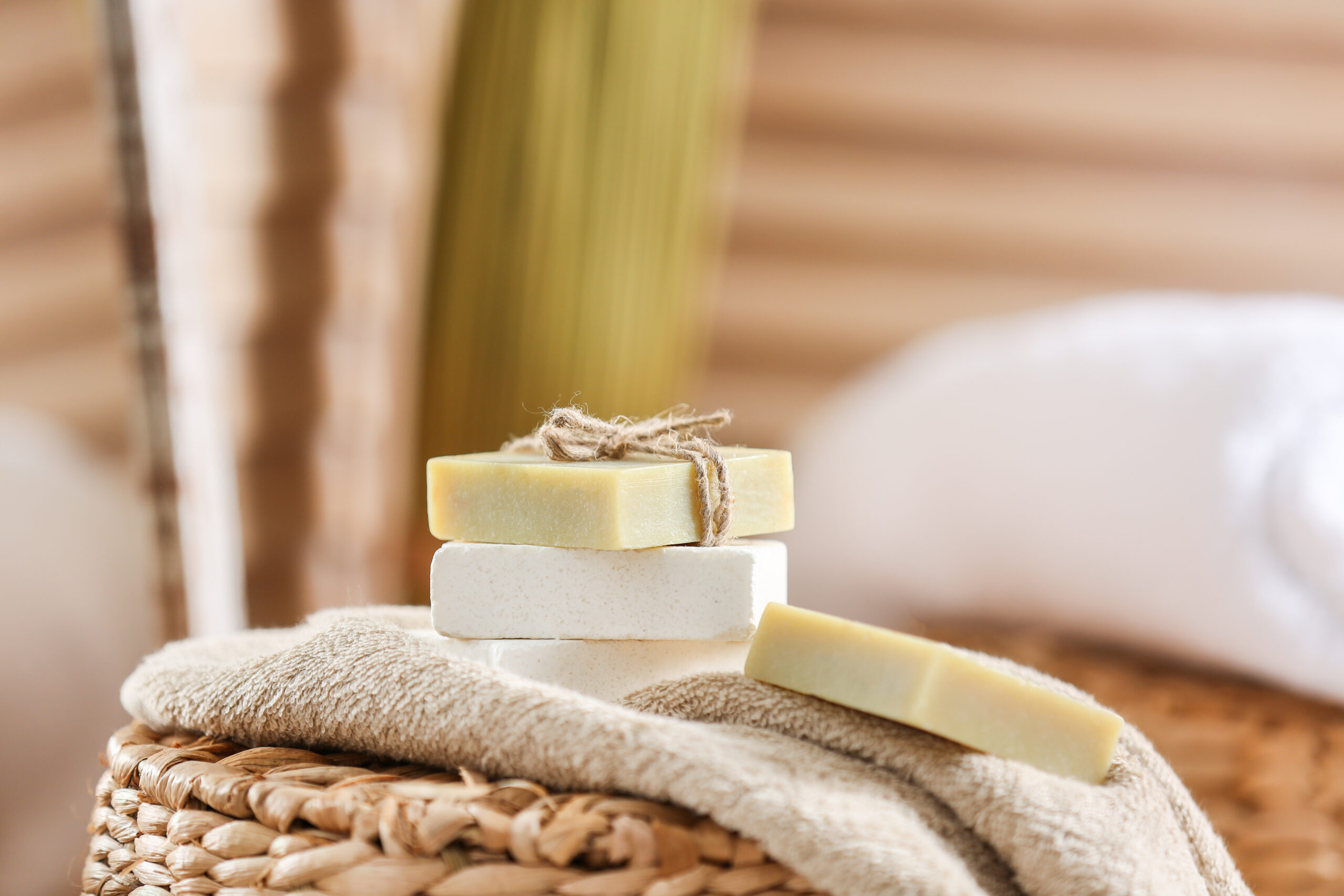Every day, you unwittingly know you subject your skin to damaging environmental aggressors such as pollution, dust, and temperature fluctuations. These aggressors tend to disturb the pH balance of your skin. Thankfully, certain soaps can remove impurities from the skin’s surface and preserve its ideal pH balance. For many years, soaps have helped make the skin clean, glowing, and smooth.
Soaps can differ based on their chemical composition and effects on the skin. Moreover, people’s skin types and dermal issues vary, making it crucial to choose a suitable soap. However, most individuals disregard the soap they use on their skin. This results in facial breakouts, acne, and even inflammation.
In this article, you’ll discover how to choose a soap that’s ideal for your skin type.

Types Of Skin And How To Choose The Best Type Of Soap
Everyone has skin, but all skin is different. You must know your skin type and find base soap ingredients to determine if a kind of soap is right for you or not.
To help you out, below are the five types of healthy skin: normal, oily, dry, combination, and sensitive. Read through the description of each type and how to find the ideal soap.
- Normal Skin
Normal skin is neither excessively dry nor oily. Although the chin, forehead, and nose (T-zone) area may be slightly oily, the skin’s sebum and moisture levels are balanced. Normal skin has a soft, silky, and smooth texture, indicative of a healthy and glowing complexion. It has no or few flaws and is not too sensitive.
Best Type of Soap: Since normal skin is neither too oily nor excessively dry, you should choose a balanced soap. Don’t use soap designed for dry or oily skin. Using the wrong soap can lead to clogged pores and severely dry skin. Instead, look for a mild soap that preserves your skin’s pH balance. For example, you may choose herbal soaps.
- Oily Skin
Oily skin appears porous, moist, and shiny. This is because excessive sebum, an oily substance required for the skin to function, causes its oiliness. In addition, overproduction of sebum can lead to acne, while too little can lead to dry, flaky skin. Typically, hereditary or hormonal factors can cause oily skin. Among the things that could worsen oiliness is stress, puberty, heat, or too much moisture.
Best Type of Soap: As previously mentioned, individuals with oily skin produce excessive sebum. If you have oily skin that breaks out more quickly, wash your face often and don’t use soaps that are too harsh. Instead, look for ingredients like benzoyl peroxide, salicylic acid, tea tree oil, aloe vera, sea salt, oatmeal, etc. These are mild and effective in removing excess oils from the skin. Additionally, ensure that your soap is non-comedogenic.
- Dry Skin
Typically, dry skin is just temporary or only occurs seasonally. Therefore, its indications and symptoms vary according to a person’s skin tone, age, sun exposure, health, and environment. These symptoms may include a feeling of skin constriction, itching, fine lines or fissures, skin that feels and seems rough, mild to severe peeling, etc.
Best Type of Soap: Reduced sebum production will result in dry skin. You may have dry skin if you often have itchy skin, flaking, dry patches, etc. In this case, the ideal ingredients to look for in your soap are glycerin, coconut oil, cocoa butter, shea butter, jojoba oil, aloe vera, and olive oil. These substances provide hydrating qualities.
- Combination Skin
Combination skin possesses both dry and oily characteristics. It is a type of skin that might be dry or normal in certain regions but oily in the T-zone. Combination skin is characterized by glossy skin, pores that appear more prominent than usual, and blackheads.
Best Type of Soap: Avoid soaps designed for oily or dry skin if you have a combination skin type. Glycerin soaps are an excellent option for combination skin.
- Sensitive Skin
Sensitive skin is a very prevalent condition. It indicates that your skin is more susceptible to symptoms such as redness and itchiness. Most individuals with sensitive skin experience occasional or regular itching, stinging, and burning. However, this skin type is highly curable and may need a visit to a dermatologist.
Best Type of Soap: Sensitive skin is more susceptible to irritants and allergic responses. Therefore, you should pick skin care products with formulas that are mild and soothing to the skin. Your soap must be free of synthetic scents, alcohol, and sulfates. Choose a soap with all-natural ingredients so it won’t irritate your skin.
Final Thoughts
So many types of soaps are being sold in marketplaces and pharmacies, and all of them promise to make your skin healthy. But not every type of soap is good for your skin. Therefore, choose a soap based on your skin type and dermal issues. Know your skin and what it needs, and you’ll be able to choose a soap that will ultimately serve its purpose.



